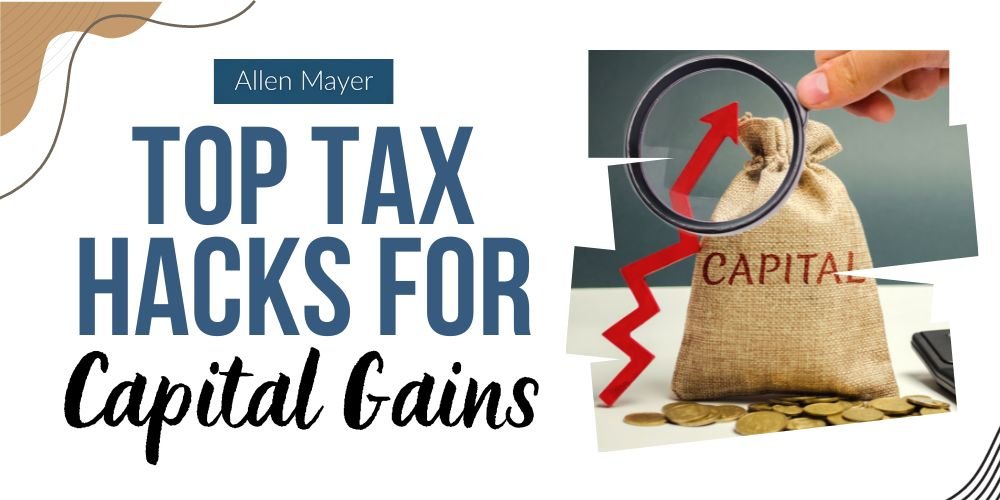When you reap the profits or get a great return on your investment, you have to pay taxes. It’s that simple. What’s not so simple is how to avoid a huge tax bill after you’ve sold your commercial or industrial real estate property. So, by working with an expert in commercial property sales and tax laws that come into play, you can find out how to decrease your capital gains taxes. To get you started, we have detailed information about capital gains taxes and how they are determined along with some tax strategies that would help reduce your bill. And considering how some strategies pertain to some scenarios more than others, we are here to offer advice that’s specific to your situation.
How are capital gains tax rates determined?
First off, 50% of your capital gains are subject to taxation, according to the Canada Revenue Agency. This means that when you make a profit, half of that financial growth is considered to be capital gains. As an illustration of this, let’s say that you bought commercial or industrial property for $500,000. Then, you decide to list it for $1.5 million after you’ve had it for quite a long time and made some renovations that have increased the value. Chances are you’ll get $1 million even, which means that half of that profit ($500,000) will be considered as your income for that tax year. Thus, you’ll have to pay $250,000 in taxes on your capital gains–give or take, depending on your exact location of residence. This also applies to you if you fall into the highest tax bracket.
One key factor to remember is that your capital gains tax rate is also your marginal tax rate. However, that doesn’t mean that you’ll pay that same percentage on all your capital gains, but your marginal tax rate will serve as a basis for calculating how much tax you’ll pay if you profit from the sale of a property. In relation to short-term gains tax versus long-term, the short-term would equal the person’s usual tax rate while the total taxable income would determine the long-term rate.
Tax Hack #1: Leverage Investment Timelines
One of the most effective tax strategies relates to your timing. In one instance, you’re looking at selling your property. Hence, the best time would be at the beginning of the year in January or even in February. This gives you the deadline of April of the following year to figure out how you’ll pay the tax or how to reinvest (or donate) your profits.
Another factor to keep in mind is that, in Canada, short-term and long-term capital gains are not determined in the same way as in the U.S. Rather, the net gain is taxed at 50% as mentioned. So, by selling your property early in the year, you’re buying more time before the April deadline of the following tax year.
Tax Hack #2: Capital Loss Offset Strategies
In this situation, loss is not so bad–at least not in the long term. In fact, you can apply 50% of any losses against any capital gains from your properties. In other words, if you have sold a property or multiple properties in the same year, and you lost money because you received less than their adjusted cost base during the sale, you can apply half the total loss to offset any gains from your properties. This could reduce your tax bill by a nominal amount.
Tax Hack #3: Commercial Real Estate Sale Exemptions
While there are no tax exemptions per se for real estate sales, you can designate your profit for a charitable contribution. By donating the money that you make from the sale, your profit drops to zero which means that you will not have to pay taxes for that windfall because it belongs to another organization. Moreover, you can get a tax credit for charitable donations depending on the value of the property that you sold. Likewise, if you’ve used the profit to fund an affordable housing construction project, you might qualify for a tax exemption or a rebate.
In a similar move, you can also have your profits go towards a pension if you are able to designate pre-taxed dollars to such a fund. Regardless of which route you might consider taking, talking with an expert who stays current on tax laws would be helpful before making a final choice.
Overall, you don’t have to change your mind about selling your commercial or industrial property on account of capital gains tax. As you can see, there are various tax hacks that can greatly reduce your tax bill or even eliminate it to where you would be entitled to a rebate. When you’re ready to seek more advice about selling your property and making the most out of your profit, contact Allen Mayer who can give close attention to your situation and offer personalized guidance. Considering how each situation differs from the other, one strategy might work well in one case, while another presents a more viable option. For this reason, don’t hesitate to call on us with any of your questions about selling your property (and perhaps reinvesting in another) and about viable solutions for dealing with taxes.

